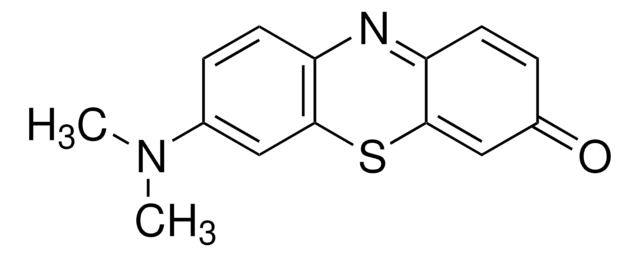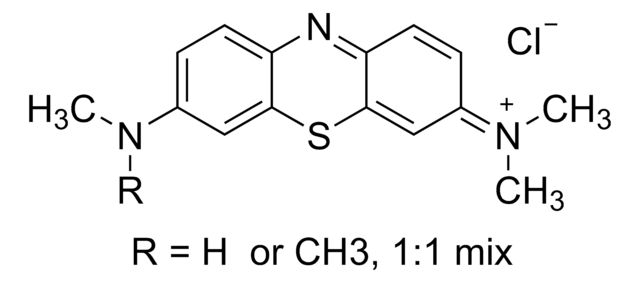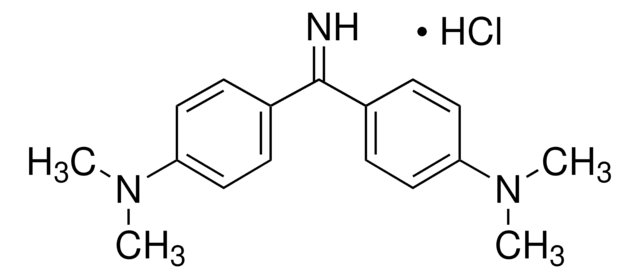861049
Azure A chloride
certified by the Biological Stain Commission, Dye content 70 %
Synonym(s):
Methylene blue
About This Item
Recommended Products
grade
certified by the Biological Stain Commission
Quality Level
form
powder
composition
Dye content, 70%
color
blue to very dark blue
very dark green
mp
290 °C (dec.) (lit.)
solubility
H2O: 1 mg/mL
λmax
633 nm
ε (extinction coefficient)
≥11000 at 242-246 nm in H2O at -1
≥26000 at 287-291 nm in H2O
≥34000 at 620-634 μm in H2O
application(s)
diagnostic assay manufacturing
hematology
histology
storage temp.
room temp
SMILES string
NC1=CC(SC(C2=N3)=CC(C=C2)=[N+](C)C)=C3C=C1.[Cl-]
InChI
1S/C14H13N3S.ClH/c1-17(2)10-4-6-12-14(8-10)18-13-7-9(15)3-5-11(13)16-12;/h3-8,15H,1-2H3;1H
InChI key
NALREUIWICQLPS-UHFFFAOYSA-N
Looking for similar products? Visit Product Comparison Guide
Application
Biochem/physiol Actions
Suitability
Storage Class Code
11 - Combustible Solids
WGK
WGK 3
Flash Point(F)
Not applicable
Flash Point(C)
Not applicable
Personal Protective Equipment
Choose from one of the most recent versions:
Already Own This Product?
Find documentation for the products that you have recently purchased in the Document Library.
Customers Also Viewed
Our team of scientists has experience in all areas of research including Life Science, Material Science, Chemical Synthesis, Chromatography, Analytical and many others.
Contact Technical Service











